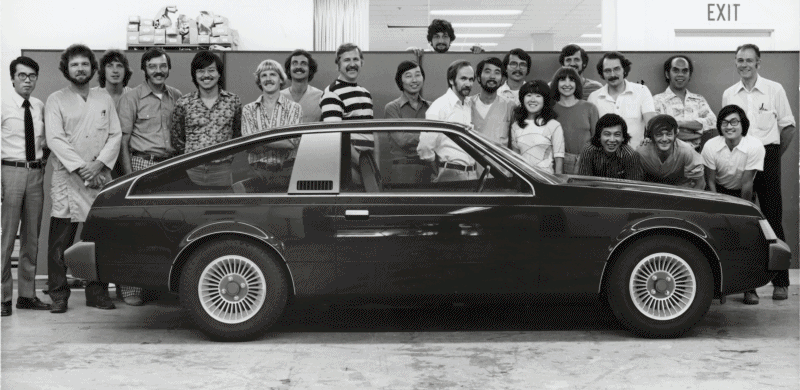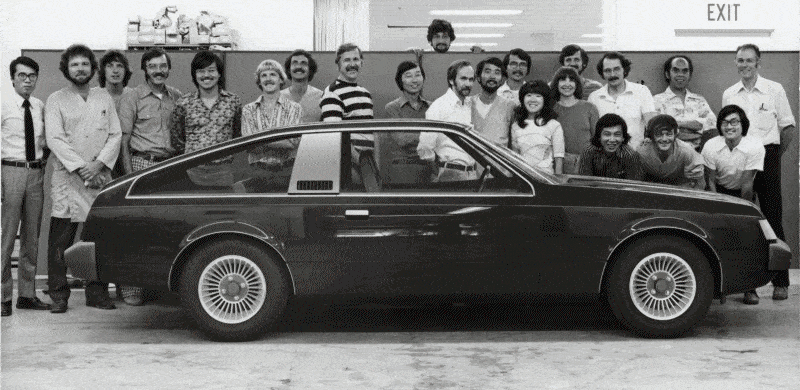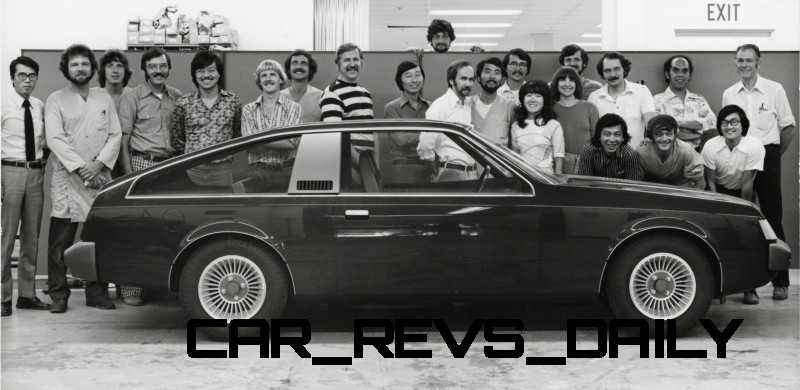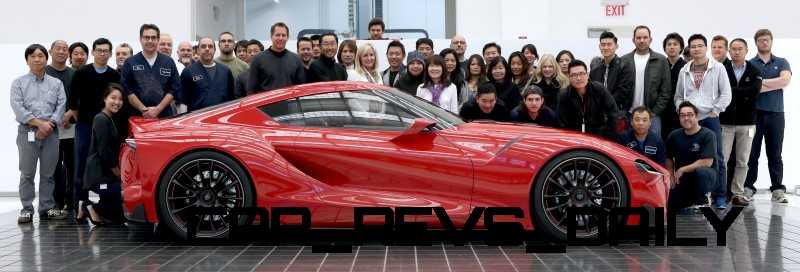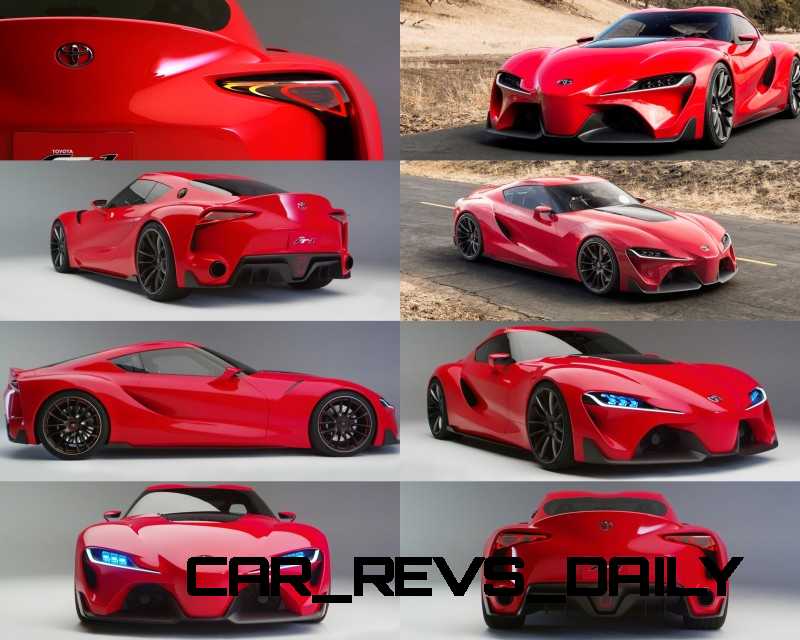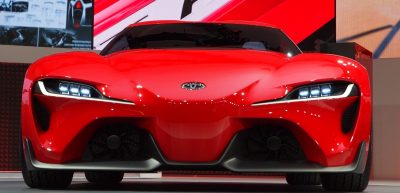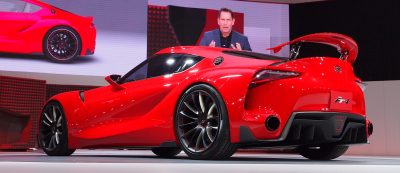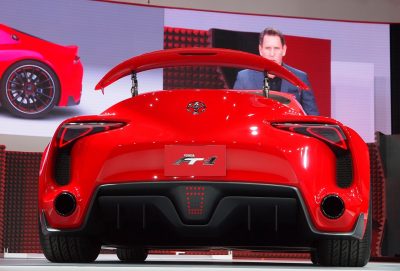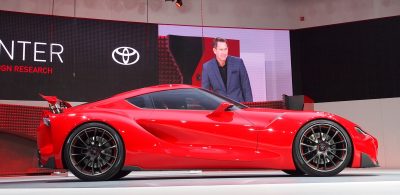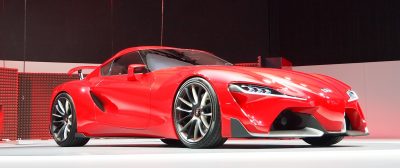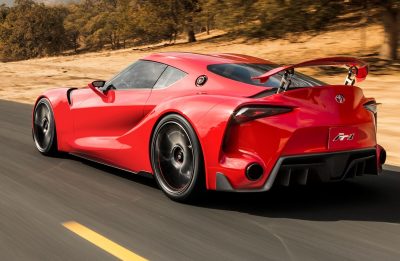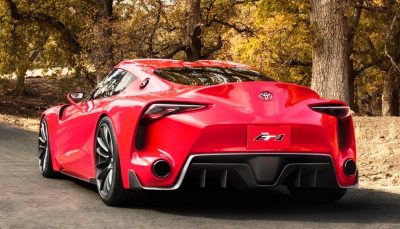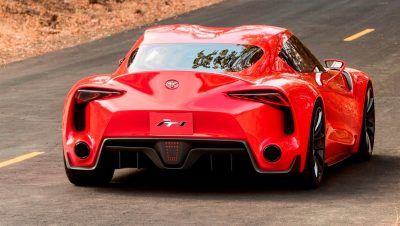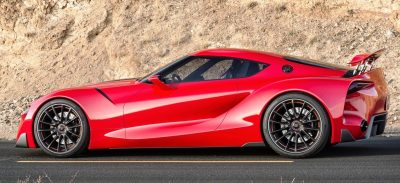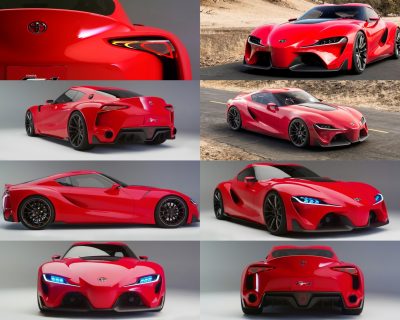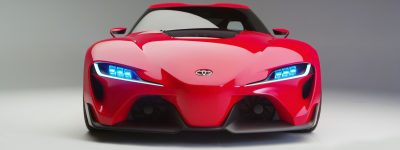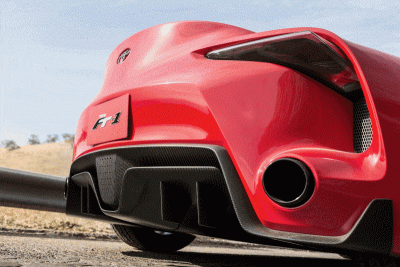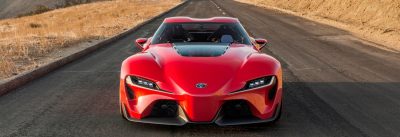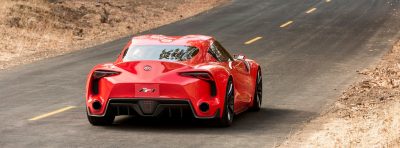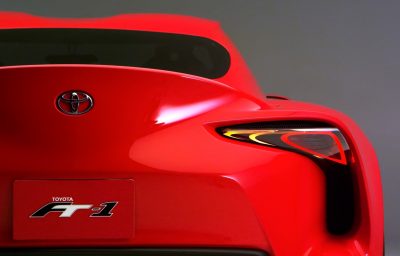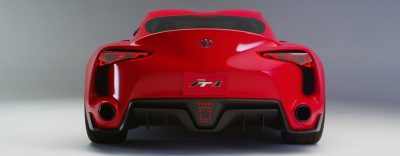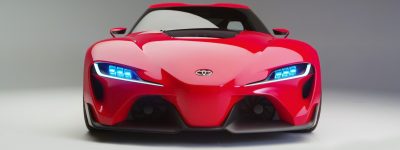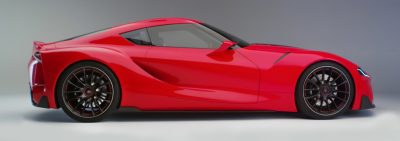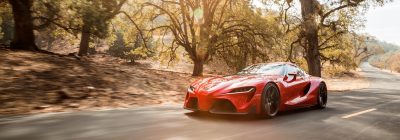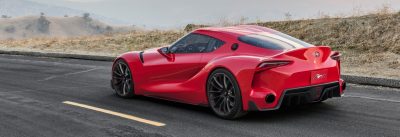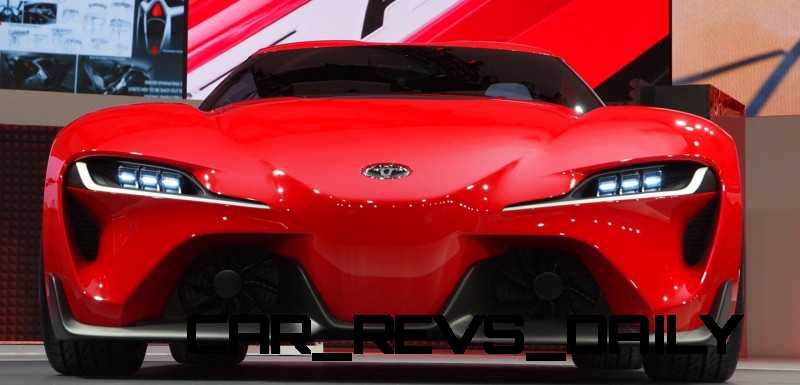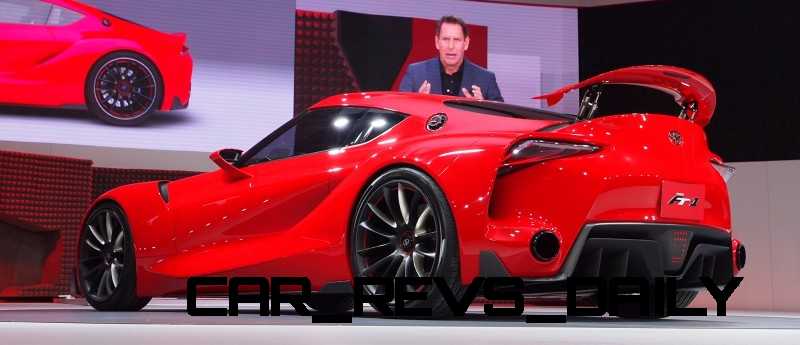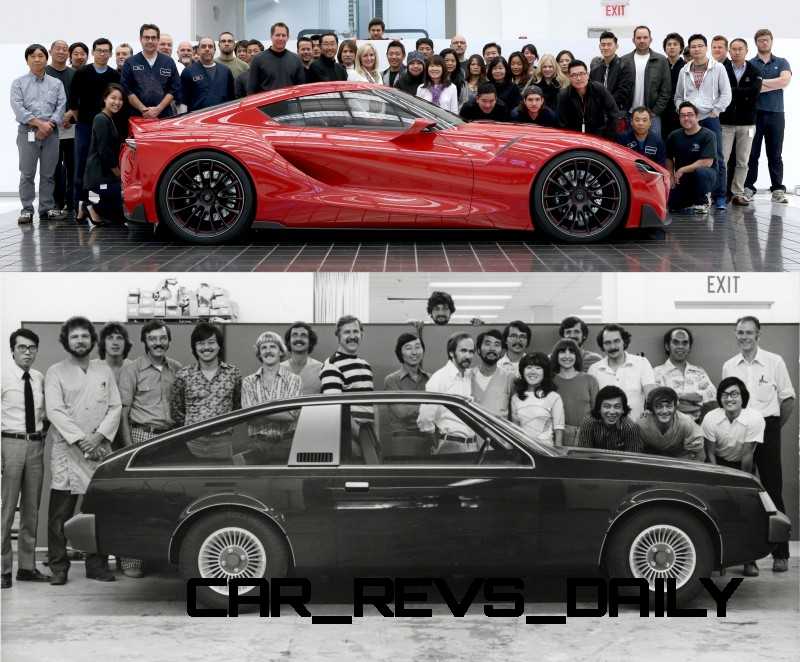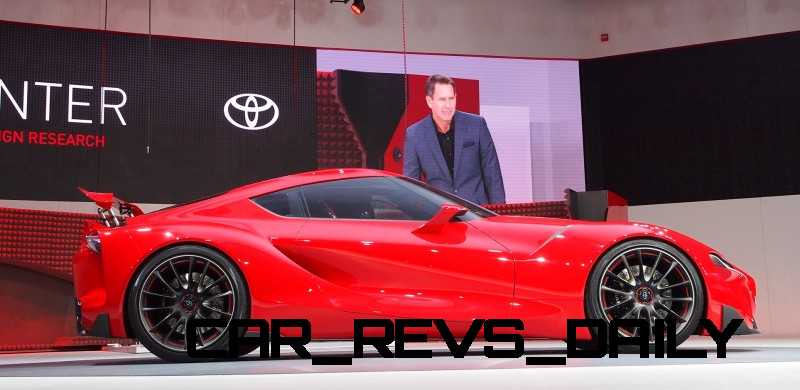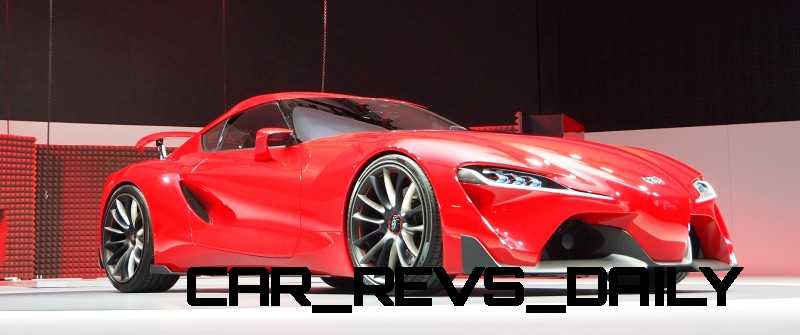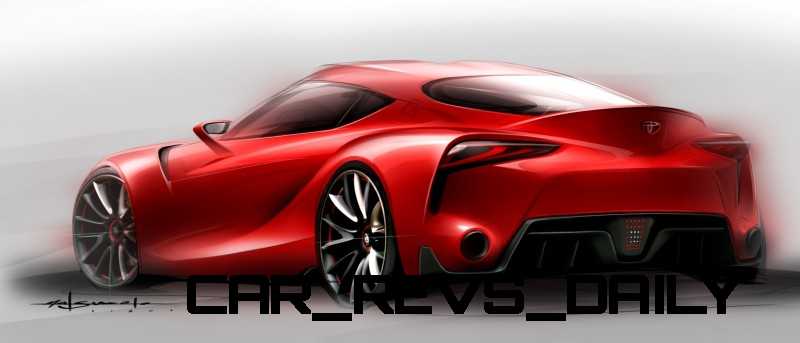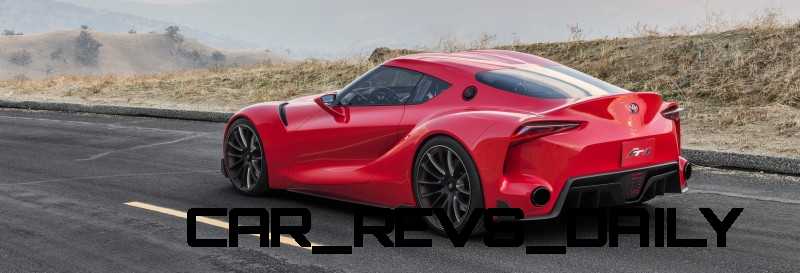I was going to add these charming images from Toyota to the FT1 article from earlier today – but decided to feature this talented team in a stand-alone article.
The below image shows the CALTY team with one of their first full projects, the hugely-successful 1978 Celica. This Celica eventually became the Celica Supra, and then the Supra we all know and love.
The Celica was a surprise global hit outside its core US market, providing Toyota the platform to affordable high-performance sports cars.
The 2000GT, for all its brilliant alloy panels and optional automatic gearbox – was a very pricey proposition then and now. Less than 400 of the original Toyota supercar were made in total from ~1964-1967.
The next photo is the 2014 team, who have been working away on some wild concept ideas for the FT1 concept. While imagination is great and all – every panel on the FT1 has to be justified by science and research.
To bring such a high style with what is clearly a future-tech showcase – we say Bravo Toyota CALTY.
Very cool, Toyota CALTY Studio!
Design story – Official Release from Toyota
The FT-1’s audacious design represents the pinnacle of Calty’s 40th year of operation. Guided by the Toyota design ethos of Vibrant Clarity, a unique fusion of both emotional and rational factors that delivers a more exciting and dramatic design expression with unique Toyota identity, the concept is a spiritual pace car for Toyota Global Design. The goal of this ideological shift is to develop future generations of products that better connect emotionally with Toyota’s global consumer base.

Traditionally, Toyota’s design decisions have been driven by consensus among a large group of stakeholders.
Under Akio Toyoda’s stated directive to invigorate Toyota products with energy, passion and “Waku-Doki” (translation: a palpable heart-pounding sense of excitement), the approval process has been streamlined. This new approach aims to produce cars that connect more deeply with customers, generating a more satisfying ownership experience that complements Toyota’s legendary reputation for quality, dependability and reliability.
“Function-sculpting” design language yields curved, muscular, expressive body forms seemingly shaped by the wind. Inlets, ducting, and vents are features of the exterior design that help reinforce its track–ready nature with elements of purposeful airflow management. At higher speeds a retractable rear wing deploys and tilts forward to create additional downforce. The body’s athleticism is expressed with taut surfaces and dramatic fender forms that seduce the eyes when covered in an unapologetically red hue.
The front engine rear-wheel drive configuration locates the cockpit far rearward within the wheelbase to improve weight distribution. This design element also helps create the classic sportscar proportions one would expect from a vehicle poised to dominate even the most challenging road course. The cockpit’s wraparound windshield and side glass openings are a distinct nod to the design of the legendary Toyota 2000GT.
The interior is a focused, highly functional “place of business” that locates the driver at the controls behind an F1 inspired steering-wheel. The intimate, low slung cockpit has its A-pillars set far back to help optimize cornering vision and sensation of the cabin’s intimacy. A delta-shaped display zone surrounds and integrates the driver to provide an exhilarating sense of being connected to the vehicle. The cockpit’s sense of minimalism adds to the purposefulness of the driver-focused environment with an emphasis on light weight components such as the composite seat covered with just the right amount of padding in only the areas that come into contact with the driver. A color heads-up display keeps the driver’s attention on the road ahead, with vital information projected just above the steering wheel within the driver’s line of sight.
While technical specifications do not accompany the concept, one can assume that the FT-1 represents an ideally balanced front-engine, rear wheel-drive layout that is powered by a high-technology, high performance internal combustion engine. Beneath a transparent glass hood, an ambiguous engine cover hides a powerplant left to the imagination of the onlooker.
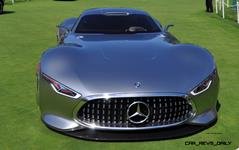
Tom Burkart is the founder and managing editor of Car-Revs-Daily.com, an innovative and rapidly-expanding automotive news magazine.
He holds a Journalism JBA degree from the University of Wisconsin – Madison. Tom currently resides in Charleston, South Carolina with his two amazing dogs, Drake and Tank.
Mr. Burkart is available for all questions and concerns by email Tom(at)car-revs-daily.com.

